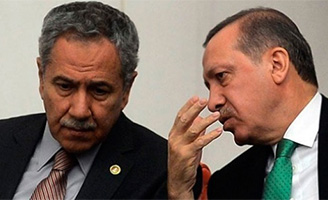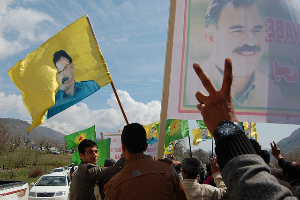Mahçupyan: AKP between the new and the old
Etyen Mahçupyan in Akşam writes that AKP’s historical mission, simply put, was to bring those who had been excluded to power. This meant democratization, and the reconstruction of the center by the periphery. It is clear that the Kurdish issue and the solution process had a crucial function. What solution means is that what is “new” advances one more step, that one more strike is dealt at the resistance of the “old.” Lack of a solution, meanwhile, will be the harbinger of the failure of what is “new,” a sign that it is about to surrender to the “old.” For the AKP, making the advance toward a solution required distancing itself from the statist, “Turkish” nationalism, and the AKP’s understanding of religiosity supplied a suitable social and ideological basis for the new orientation. The best way of derailing the AKP’s reformism is to end the solution process. What will be the choice of the AKP in a situation when everyone else either wants to have the “old” back or – as in the case of HDP – has no influence left? Hang on to the “old?” Or carry the “new” itself?
Creeping Shadows: The Repercussions of the AKP’s Aggressive Policy towards the HDP
By Gareth Jenkins (vol. 8, no. 8 of the Turkey Analyst)
In recent weeks, Turkey’s ruling Justice and Development Party (AKP) has pursued an increasingly aggressive policy towards the pro-Kurdish Peoples’ Democratic Party (HDP) in the hope of pushing the party below the 10 per cent national threshold in the June 7, 2015 general election while simultaneously preventing Turkish nationalists amongst the AKP’s own voters from defecting to the Nationalist Action Party (MHP).
The Turkish Islamists See the Sunni Nation as the Solution to the Kurdish Problem
By Fatih Yaşlı (vol. 8, no. 7 of the Turkey Analyst)
Historically, Turkey’s Islamists have taken a view of the Kurdish problem that has made them the tacit allies of the Kurds, both standing in opposition to the founding ideology of the Turkish republic. As the Islamists see it, the Kurds are a pious, conservative people that together with the Turks constitute the “Muslim nation.” For the AKP, the solution to the Kurdish problem is spelled “Islamic fraternity.” This is the assumption that ultimately sustains the negotiations that the AKP has been conducting with the Kurdish political movement.
Battles and Wars: Bracing for Erdoğan’s Long Goodbye
By Gareth Jenkins (vol. 8, no. 6 of the Turkey Analyst)
On March 20, 2015, Turkish President Recep Tayyip Erdoğan publicly criticized the announcement by the ruling Justice and Development Party (AKP) that it was planning to establish a monitoring committee to oversee discussions about reforms on the Kurdish issue. On March 21, 2015, Government Spokesperson Bülent Arınç bluntly told Erdoğan not to interfere in the running of the government. Arınç repeated his admonition the following day. It was the first time that a leading member of the AKP had issued such an outspoken public challenge to Erdoğan’s authority.

The Kurdish Nationalist Movement and the Dialogue with Öcalan
By Gareth Jenkins (vol. 7, no. 22 of the Turkey Analyst)
On November 29, 2014, Abdullah Öcalan, the imprisoned founder of the Kurdistan Workers’ Party (PKK) told a visiting delegation from the pro-Kurdish Peoples’ Democratic Party (HDP) that the Kurdish issue could be resolved – and the PKK’s 30 year-old insurgency ended – within four to five months provided that the ruling Justice and Development Party (AKP) took the appropriate measures. In reality, not only is there little prospect of breakthrough but frustration at the lack of progress has begun to highlight the struggle for relevance between different elements within the Kurdish nationalist movement.







